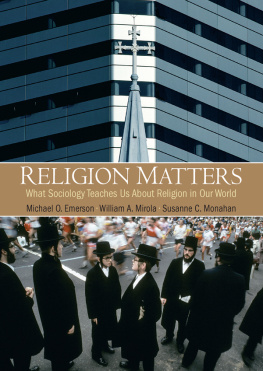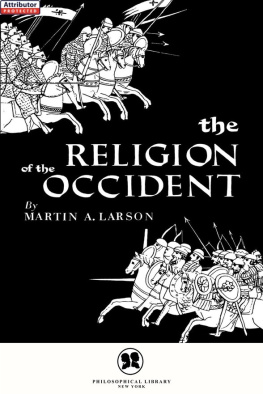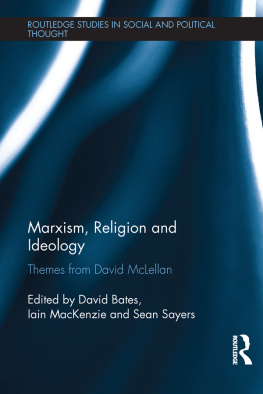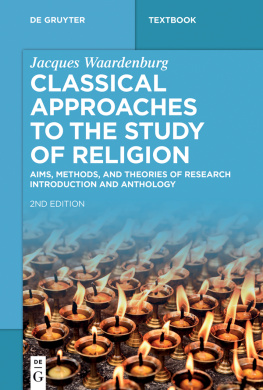Contents
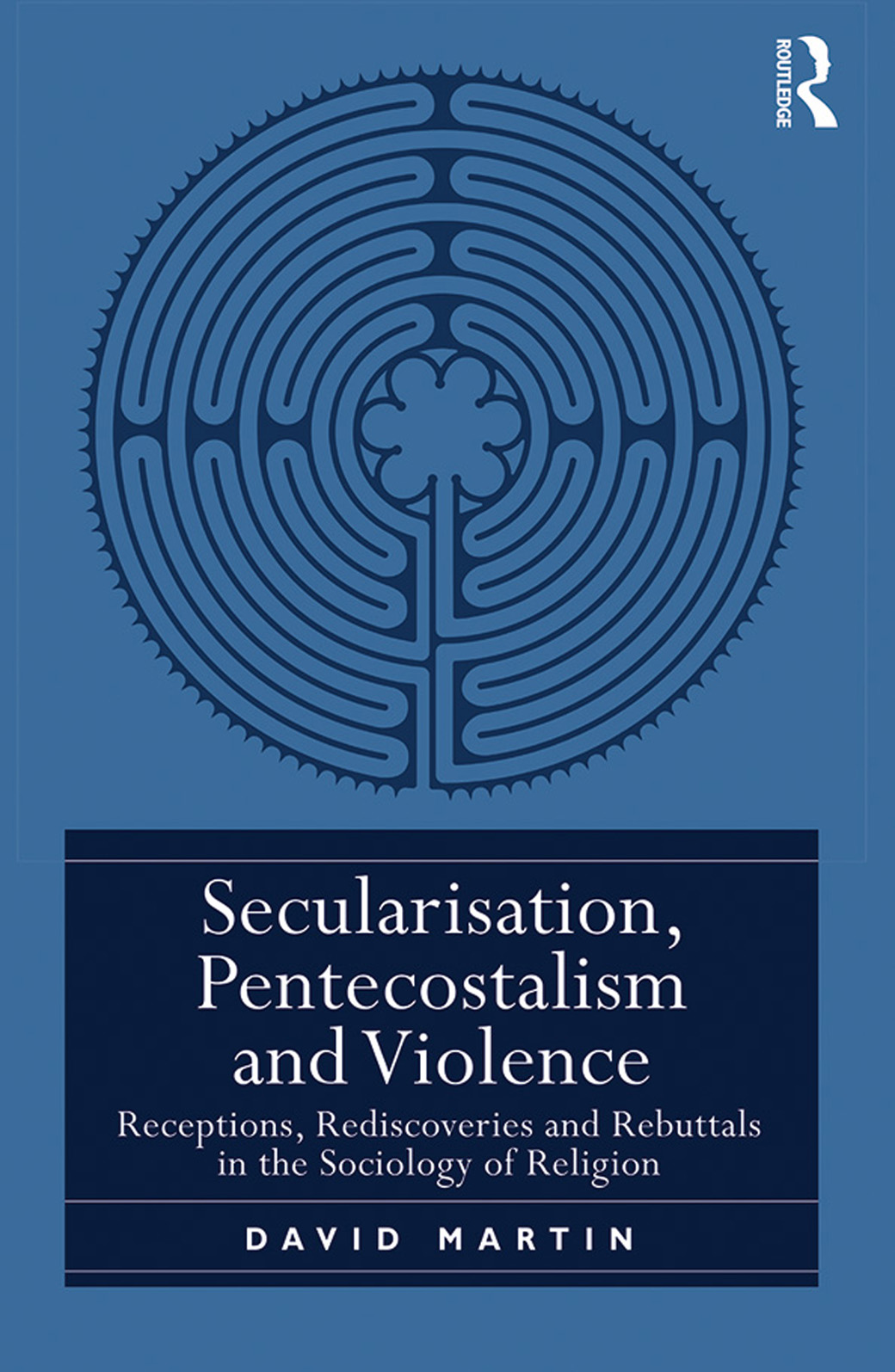
Secularisation, Pentecostalism and Violence
In this book David Martin brings together a coherent summary of his many years of ground-breaking academic work on the sociology of religion. Covering key and contentious areas from the last half-century such as secularisation, religion and violence, and the global rise of Pentecostalism, it presents a critical recuperation of these themes, some of them first initiated by the author, and a review of their reception history. It then reviews that reception history in a way that discusses not only the subjects themselves, but also the academic practices that have surrounded them.
As such, this collection is vital reading for all academics with an interest in David Martins work, as well as those involved with the sociology of religion and the study of secularisation more generally.
David Martin is Emeritus Professor of Sociology, London School of Economics and Political Science (LSE), UK, and Fellow of the British Academy. He was born in Mortlake in 1929 and attended East Sheen Grammar School and Westminster College. In the latter part of a seven-year period in primary school teaching he took a first class (external) degree in sociology in his spare time and won a post-graduate scholarship to the LSE. He became a lecturer in the LSE sociology department in 1962 and was a professor from 1971 to 1989. After his first book on pacifism (1965) he produced the first critique of secularisation theory (1965) and the first statement of a general theory of secularisation (1969 and 1978). From 1986 to 1990 he was Distinguished Professor of Human Values at Southern Methodist University, USA, and turned to the study of global Pentecostalism, producing the first summary statement of the worldwide Pentecostal phenomenon in 1990. He also returned to the issue of religion and violence and explored issues in music and nationalism, and sociology and theology. His intellectual autobiography, The Education of David Martin, appeared in 2013.
First published 2017
by Routledge
2 Park Square, Milton Park, Abingdon, Oxon OX14 4RN
and by Routledge
711 Third Avenue, New York, NY 10017
Routledge is an imprint of the Taylor & Francis Group, an informa business
2017 David Martin
The right of David Martin to be identified as author of this work has been asserted by him in accordance with sections 77 and 78 of the Copyright, Designs and Patents Act 1988.
All rights reserved. No part of this book may be reprinted or reproduced or utilised in any form or by any electronic, mechanical, or other means, now known or hereafter invented, including photocopying and recording, or in any information storage or retrieval system, without permission in writing from the publishers.
Trademark notice: Product or corporate names may be trademarks or registered trademarks, and are used only for identification and explanation without intent to infringe.
British Library Cataloguing-in-Publication Data
A catalogue record for this book is available from the British Library
Library of Congress Cataloging-in-Publication Data
A catalog record for this book has been requested
ISBN: 978-0-415-78859-5 (hbk)
ISBN: 978-1-315-22516-6 (ebk)
Typeset in Sabon
by codeMantra
Dedicated to Joseph Martin
Grandson and young student of politics
This book could be seen as oblique intellectual biography complementing the much more personal intellectual autobiography of The Education of David Martin: The Making of an Unlikely Sociologist (2013). Certainly the intellectual self-scrutiny involved in that provided a very useful preliminary to the present exercise. It has this autobiographical character because I was asked by Paulo Costa of the University of Trento to give some account of my work on secularisation for post-graduate students of his university. Unfortunately, severe restrictions on my mobility prevented me giving these lectures, though I did the preparation for them and they provided the core of much of the initial chapters of this book. I certainly did not want to waste so much effort even though I recognised that an essay in oblique autobiography could easily appear self-regarding and self-referential.
My overriding motivation has not been autobiographical, even obliquely, but to provide introductions to the key issues that have concerned me over the last half-century or so. My rationale here is that hardly anyone has the same acquaintance over more than half a century with the issue of secularisation, and absolutely no one can have the kind of reasonably consistent orientation that enables me to organise this material in a continuous narrative. I have a point of view that anyone wishing to excavate what has been involved in a continuing and crucial debate could not possibly have. Indeed, my examination of attempts of this kind in recent bibliographical essays shows them lacking in depth and criteria of selection. My criteria of selection may be personal but it is precisely the personal thread that makes this narrative possible.
The issues go beyond secularisation, though that is of central concern, and extend to the related issues of the global expansion of Pentecostalism and of the relation between religious pacifism and eschatological violence. If this knot of concerns does not immediately seem to be tied together, I try to tease out the connections and let the different themes talk to each other. For example, the expansion of Pentecostalism bears directly on the issue of secularisation, while the issue of violence raises questions about the transfer of religious eschatology to political ideologies and religious templates to nationalist ideologies that lie at the heart of the secularisation debate.
In the course of exploring these three core topics I have also and unavoidably found myself exploring the reception of my arguments. This in turn has led me to reflections on the structure of the field and the extraordinary processes of the remembering, forgetting and rediscovery of ideas: hence my title. This amounts to an exercise in excavation and it has all fed into my longstanding fascination with the sociology of sociology and the nature of our academic practices, especially as they have been progressively Americanised in the course of my lifetime. In the text I explain, from time to time, just how slowly I, as someone who began as an outsider to the academy, recognised how my environment was changing, how I ought to have adjusted to change, and just how mistaken were some of my more idealistic apprehensions of the academic role.
Inevitably there are overlaps but I have not tried to eliminate them. I have also, at the conclusion of the section on secularisation, provided an extended discussion of an issue that has long interested me as far back as my initial studies of the processes of secularisation. This concerns secularisation in the arts, notably the paradoxical character of secularisation in music compared to secularisation in the visual arts. I have not tried to include my interest in sociology as it relates to theology, in part because that was the theme of my Ruin and Restoration (2016). I conclude with a couple of lectures read for me in China at the Chinese launch of The David Martin Reader (2015) on two of the issues just mentioned: the problem of violence and the problem of secularisation in relation to the dubious concept of modernisation. I was initially uncertain whether to include them, partly because I used a different and pared down style to promote easy understanding. Nevertheless, my hope is that these two discussions, specifically directed to Chinese audiences, may illustrate the approaches adopted in the book overall. In particular, the first of these lectures seeks to disrupt a fashionable narrative loading the responsibility for violence on religion. The same problems of seriously impaired mobility that prevented me going to Trento, also prevented me going to China.


